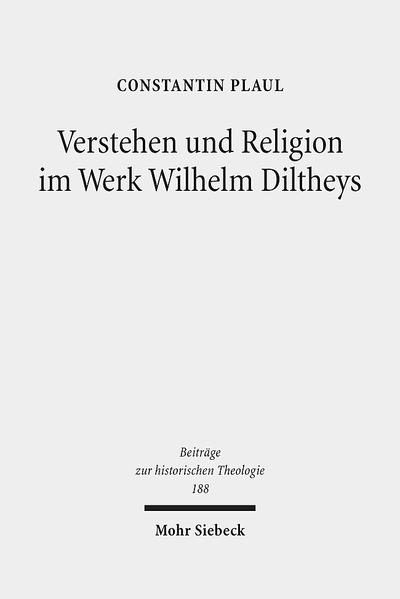PLAUL,C., Verstehen und Religion im Werk Wilhelm Diltheys. 2019.
Verstehen und Religion im Werk Wilhelm Diltheys. Theologische Dimensionen auf kulturphilosophischer Grundlage. 1. Aufl. Mohr Siebeck, 2019.
17 x 23 cm. XV, 405 S. Leinen. (Beiträge zur historischen Theologie, 188). ISBN 9783161563140.
‘Deuten’, ‘Interpretieren’, ‘Auslegen’ und ‘Verstehen’ bilden in der Moderne nicht mehr nur wesentliche Momente einer Hermeneutik schriftlicher Texte. Im Verlauf des 18. und 19. Jahrhunderts kam es zu einer tiefgehenden Transformation, in deren Zug hermeneutische Reflexionen sowohl in methodologischer als auch in grundlagentheoretischer Hinsicht zur Basis aller Geistes-, Kultur- und Sozialwissenschaften avancierten. Wilhelm Dilthey spielt innerhalb dieses Transformationsprozesses eine Schlüsselrolle. Constantin Plaul widmet sich der Erarbeitung seiner Verstehenskonzeption und nimmt dafür zunächst den philologischen Entdeckungszusammenhang in den Blick. Zudem untersucht er ihre systematischen Dimensionen in Diltheys Gesamtwerk. Die Fluchtlinie liegt in den Konsequenzen für die Problematik der Religion, die von Dilthey nicht nur als Objekt, sondern auch als Fall von Verstehen begriffen wird.
Order Number: 3418VB
Fixed Retail Price: EUR 114,--

